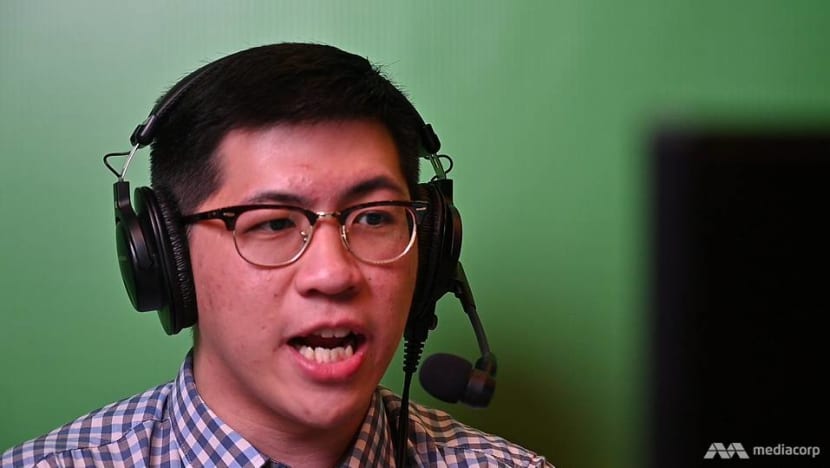Alien language? Shoutcasters like Daryl Lim are the voices of e-sports tournaments
The spotlight may be on the gamers gunning for million-dollar prizes, but the little-known shoutcaster is the one tasked with fuelling viewership. Starting as young as their teens, like Daryl, they draw a decent salary too.
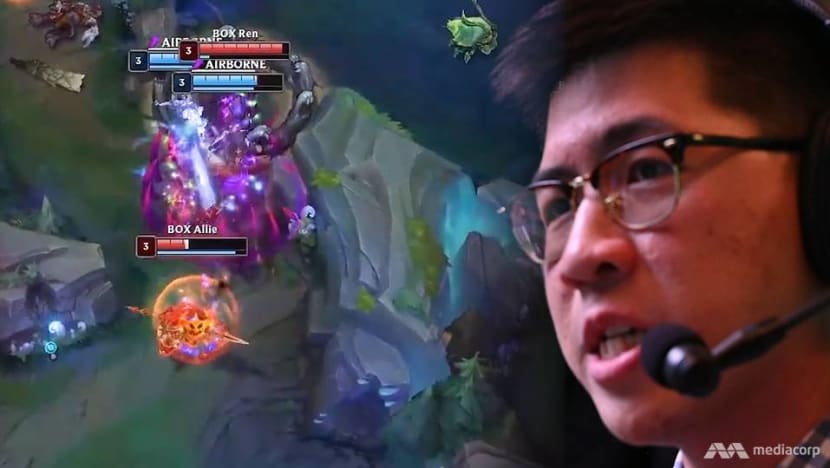
Daryl Lim showing that there's more to a career in gaming than playing.
SINGAPORE: He was 18 years old when he received a job offer from a gaming company. Daryl Lim was thrilled; his parents were not.
It was not because he wanted to be a professional gamer — at least they had heard of that before. But what in the world was shoutcasting?
“It was like an alien language,” his mother, 56-year-old Charlene Yong, says about the first time she watched her son in action.
There were tiny characters running amok on the screen. There were flashes of red and blue, followed by some concoction of fireballs and magic dust. Throughout, his voice rang out, varying in speed and emotion.
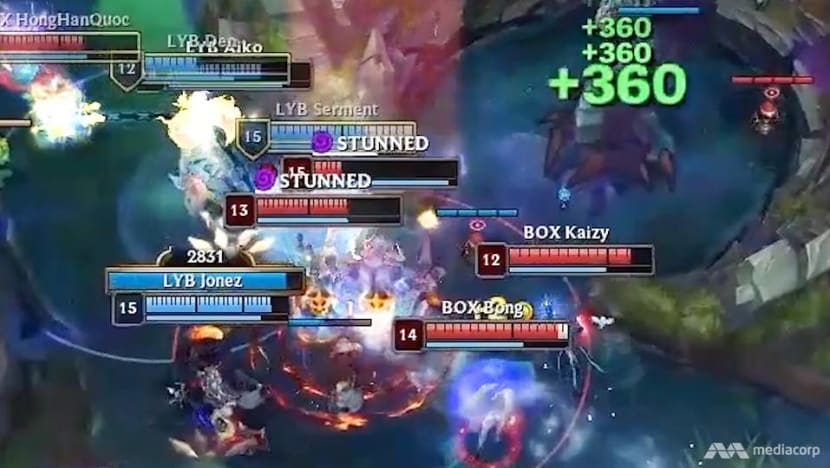
As one of about 15 professional shoutcasters in the country, he commentates on e-sports matches to a live audience and online viewers.
He is at once the analyst and the entertainer, for a match that ranges anything between 20 minutes and an hour. Rarely does he allow a moment of silence to pass.
His role is one of many interesting e-sports jobs that are finding a footing in Singapore as the industry starts to open up and gain acceptance here.
“My mum was very sceptical upfront. She didn’t understand e-sports in the beginning,” recalls Daryl, now 24 and pursuing psychology and communications at university.

But now she is a fan of his work and even encourages him to take a gap year in his education to shoutcast full-time.
While she still cannot say with confidence what he actually does, she knows he has worked hard to make it to tournaments overseas, is able to earn up to S$4,000 a month and has long-term career plans.
“I don’t know the game well, but we should make an effort to find out what’s going on in the industry,” says Yong, a human resources consultant. “We have to be extremely open-minded about taking (e-sports) as a profession.”
READ: Swapping textbooks for joysticks to represent Singapore in e-sports
WHY SHOUTCASTING?
Her son discovered professional shoutcasting in 2012, when e-sports tournaments in the United States and Europe started to become glamorous.
“Like football and basketball, at the very high level, there’s a demand to watch professionals play,” he says. “So the natural thing was to have someone explaining and hyping up the action as the game was going on.”
WATCH: My life as a professional shoutcaster (5:20)
What used to be informal gatherings in game cafes evolved into sold-out shows in arenas and millions of viewers watching online.
In particular, the second season of the League of Legends World Championship — the annual finale for the battle action game — sparked Daryl’s interest.
“They had shoutcasters who were extremely good. There were multiple camera angles on them, the lighting was great, and the music was on point,” he recalls.
The fact that a gaming event “could be this professional” — and its US$2 million prize pool — convinced him that the role was one he could take seriously.
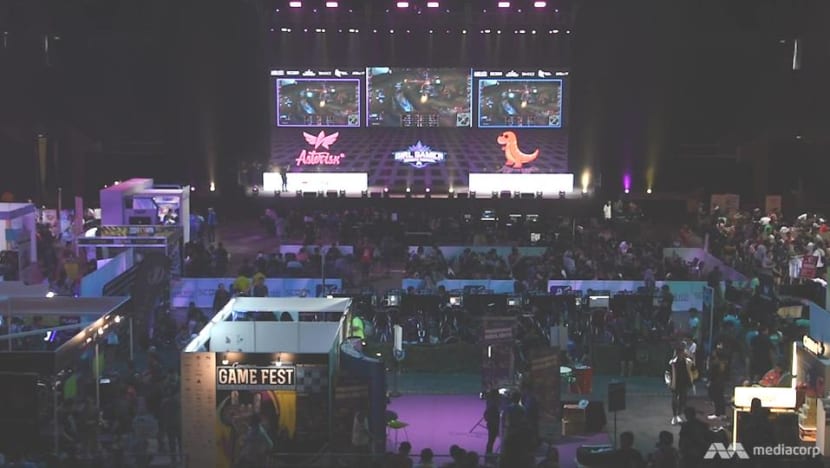
Granted, Singapore’s e-sports scene at the time was nowhere near the more developed markets. But opportunities were coming.
READ: Singapore companies looking to capitalise on region's fast-growing gaming culture and interest in e-sports
In fact, as he began looking into shoutcasting, local gaming company Sea, then known as Garena, was having an audition for League of Legends shoutcasters to join its existing batch of five. He decided to give it a shot.
After all, he played the game decently, he knew enough about the prominent teams and players, and he loved to talk. But when his big moment came, words failed him. So he was asked to man the in-game cameras instead.
Even now he considers himself lucky, as that was how he set foot in the local gaming industry.
NOT JUST ABOUT PLAYING
Shoutcasting was harder than Daryl imagined because in League of Legends, spontaneous fights happen throughout the game as opponents try to conquer each other’s bases.
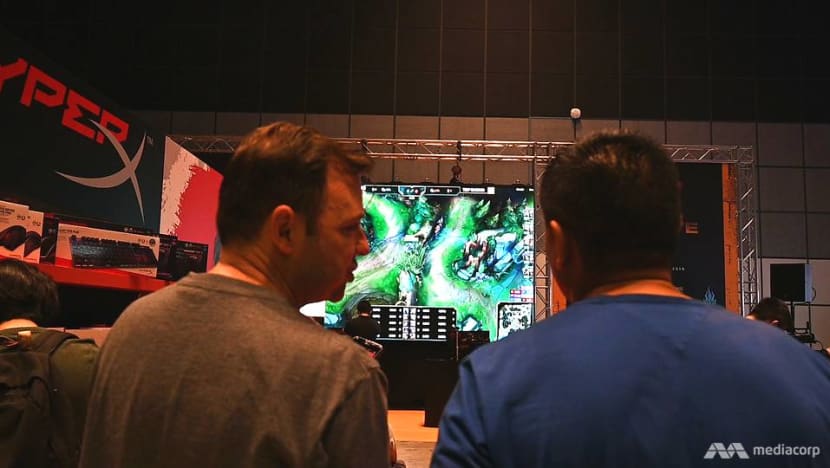
“There’s no actual indicator that a team’s going to win a fight until it happens,” he explains. And amid the frenzy, shoutcasters must focus and pick out the most important move to talk about in a split second.
In his first audition, his mind was whirling “a mile a minute” instead. “I couldn’t translate my thoughts into words, and when they came out, they just didn’t make sense,” he admits.
It took him a year of understudying and practice before he could take the stage at a live event.
For one thing, he had to pick up better vocabulary and phrases to sound interesting. He had to train himself to speak with more energy and to vary his pace during the ups and downs of the play.

Throw in the need to simplify the game’s concepts in real time, and it becomes clear that what makes a good shoutcaster also has less to do with knowing the actual game.
The one thing he must do for every match, Daryl says, is to research the players and teams so that he can convey the importance of the tournament.
“What makes you a return viewer is (you) being invested in (whether) that team wins,” he says.
So whether it is two sisters competing together for the first time, a team making its seventh attempt to win a championship or a prominent player whose signature move flopped, Daryl must know that history like the back of his hand.
READ: 20 athletes break new ground to represent Singapore in e-sports at SEA Games 2019
CHANGING IMPRESSIONS
No more is he the teenage boy who played hours of games and neglected his homework. Today, his love of gaming is purposeful, and his parents are convinced.

“There’s that facet of discipline — to get up for your gig, prepare properly and dress the part. Then, let the results show,” he says.
In between studying at school, reading voraciously and spending time with family and friends, he has worked hard at making a name for himself as a shoutcaster.
As a freelancer, he can get four or five jobs a month and earn hundreds or even a thousand dollars from each, depending on the scale of the event.
Last year, he was hired to shoutcast overseas for the first time — in Hong Kong, Shanghai and Bangkok. His parents tuned in to the livestream to catch a glimpse of him, never mind that they could not decipher his speech.
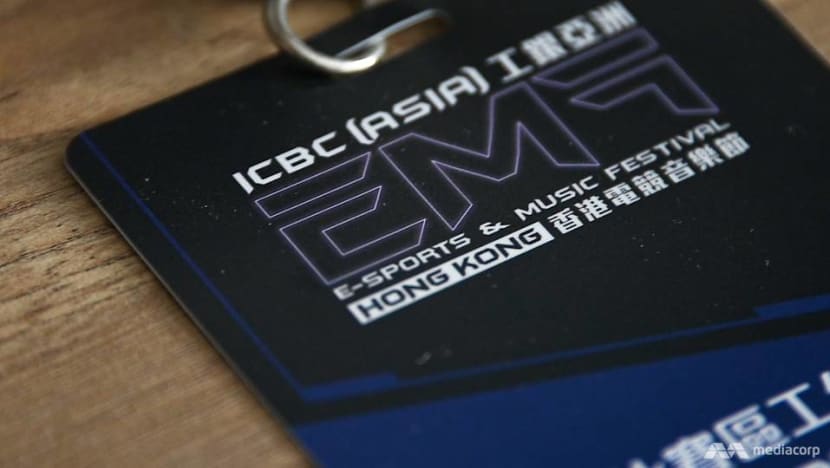
“Gaming is something I’m not familiar with, but he knows what he’s doing,” says his father, 57-year-old Alex Lim. “And with the happiness he’s gained from working in this line, there’s no reason I should stop him.”
Figures from e-sports market research firm Newzoo also show that the industry is a force to be reckoned with. Since Daryl started shoutcasting in 2015, global e-sports viewership has doubled to 453.8 million. Global annual revenue has grown, on average, by more than 30 per cent.
In Singapore, the tide is also turning: Support for the industry was brought up in parliament; the first Asian edition of gamescom, the world’s largest gaming festival, will be held here next year; and gaming company Razer is spending S$10 million to grow the local e-sports and gaming scene.
READ: World’s largest gaming festival coming to Singapore in 2020
READ: Razer's Tan Min-Liang pledges S$10m to grow Singapore's e-sports, support SEA Games team
With the industry abuzz, the Singapore Cybersports and Online Gaming Association (SCOGA), which has been around since 2008, is seeing more parents concerned with helping their children with a career in e-sports and gaming.
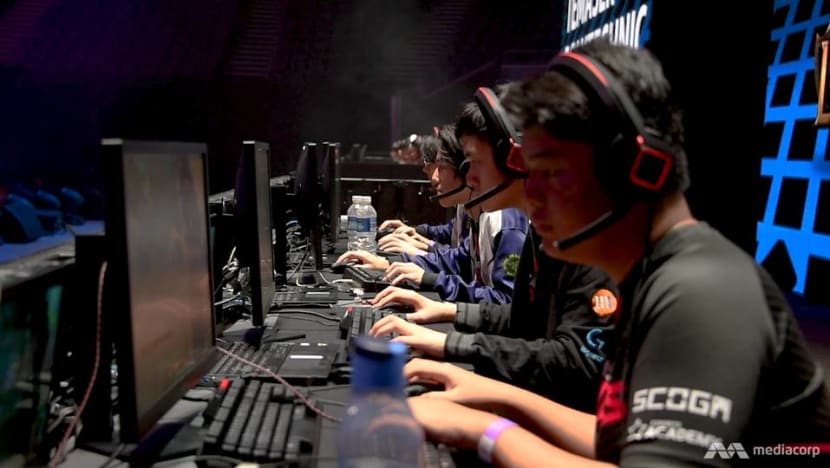
“We do see a shift from parents saying ‘my child’s addicted to gaming, what do I do?’ to ‘if my child wants a career in e-sports, is it viable?’” says SCOGA chairman Nicholas Khoo, 41.
The association, which runs the country’s first e-sports academy, has seen parents of children as young as nine years old enquiring about its courses. These include foundation and master classes for various games, live-streaming and even e-sports journalism.
And when it held a career talk by an e-sports coach this year, half of the attendees were parents, when there were only youth in the past.
“We hope to provide more clarity in terms of career pathways so parents will be more assured,” says Khoo.
PAYING IT FORWARD
Having ventured successfully into shoutcasting, Daryl also wants to help gaming enthusiasts, like him, tread those paths.
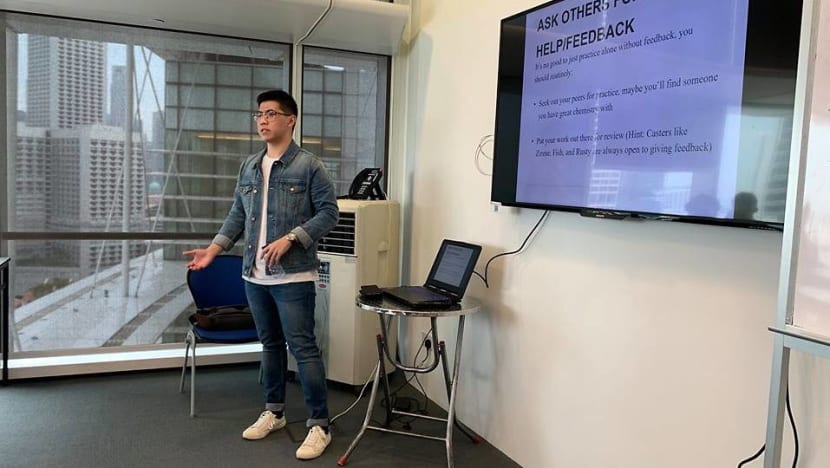
He wrote to the SCOGA, and in May, they started a mentorship programme together, where he covers topics from shoutcasting tips to conducting business as a freelancer.
“E-sports really did change my life for the better,” he says. “I’d be very happy if I could change one person’s life through e-sports also.”
Of the 30 youth who attended his class, four were chosen to debut live at the SCOGA’s annual Campus Game Fest (CGF), held in August at the Singapore Indoor Stadium for the first time since it rolled out in 2013.
One mentee, in particular, quite reminds Daryl of himself. Lim Chu Farn has been his understudy at various tournaments since the CGF and has got at least three shoutcasting jobs after the mentorship programme.
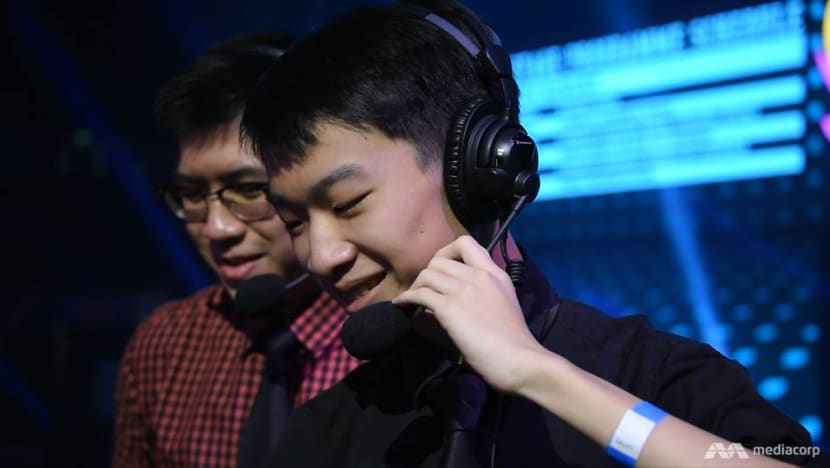
“The local industry is much larger than I expected,” says the 18-year-old, who is in his second year studying game design at polytechnic. And it will get better with efforts to bring in new talent, he adds.
All that said, his mentor is not looking to shoutcast for the long haul. Daryl has set his sights further: “I want to transition into working with (e-sports) players, maybe as a sports psychologist or sports therapist.”
He takes his inspiration from e-sports psychologist Mia Stellberg, who has made the news for her role in bringing teams like Germany’s SK Gaming, Denmark’s Astralis and, most recently, European-based OG to victory.
“Hopefully, we come to a point where (such jobs) become more common in Singapore,” he says.
For now, he will continue shouting into computer screens.
